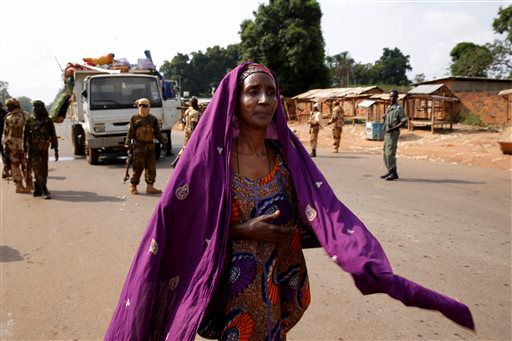By Brandon R. Cottrell
Impunity Watch Reporter, North America
GUATEMALA CITY, Guatemala – The Guatemalan Supreme Court has upheld its ruling that Attorney General Claudia Paz y Paz must step down in May, which is seven months prior to her term’s natural expiration.

U.S. Ambassador Arnold Chacon, in a statement this week described Paz as “an example of an honest, capable public servant of integrity.” Paz y Paz, since taking office in May 2010, has put four civil war era generals and organized crime suspects on the stand to face charges of crimes against humanity and for genocide. Prior to her appointment, these cases had been at a stand still for decades. As of now, however, only one of those cases has been brought to trial.
Additionally, Paz y Paz has moved for international training of prosecutors, so that the prosecutors will “carry out more scientific prosecutions.” This movement has resulted in the successful prosecution of several high profile cases.
The prosecution of General Efrain Rios Montt, who ruled from 1982 to 1983, is perhaps Paz y Paz’s highest profile case. That case resulted in an eighty-year sentence for Montt, who knew about the slaughter of nearly two thousand Mayans during the Civil War. That sentence, however, was annulled on appeal.
The annulment of Montt’s sentence is seen by many as a sign of the lingering influence of the military and its backers. This is only further verified when considering that Ricardo Sgastume, the lawyer who brought the constitutional challenge to out Paz y Paz is a member of the National Convergence Front Party, which was founded by former military officials.
Jorge Santos, a member of the Convergence for Human Rights, has criticized the Supreme Court’s ruling saying that they (the Convergence for Human Rights) “believe the court’s decision doesn’t do anything to defend the Constitution and instead works in favor of vested interests that want to maintain impunity.”
In a statement, Paz y Paz did not comment as to whether or not she thought her ouster was motived by political reasons. She did say, however, that “the magistrates have to interpret laws according to their values and criteria and according to what the Constitution says and they can’t act based on other types of influences.”
A commission has since been formed to find Paz y Paz’s replacement. The commission was formed after 94 of 158 lawmakers voted in favor of replacing Paz.
For further information, please see:
ABC News – Guatemala Begins Process To Replace Top Prosecutor – 10 Feb. 14
AP – Guatemalan Court Upholds Top Prosecutor’s Ouster – 8 Feb. 14
Washington Post – Guatemalan Court Upholds Top Prosecutor’s Ouster – 8 Feb. 14


